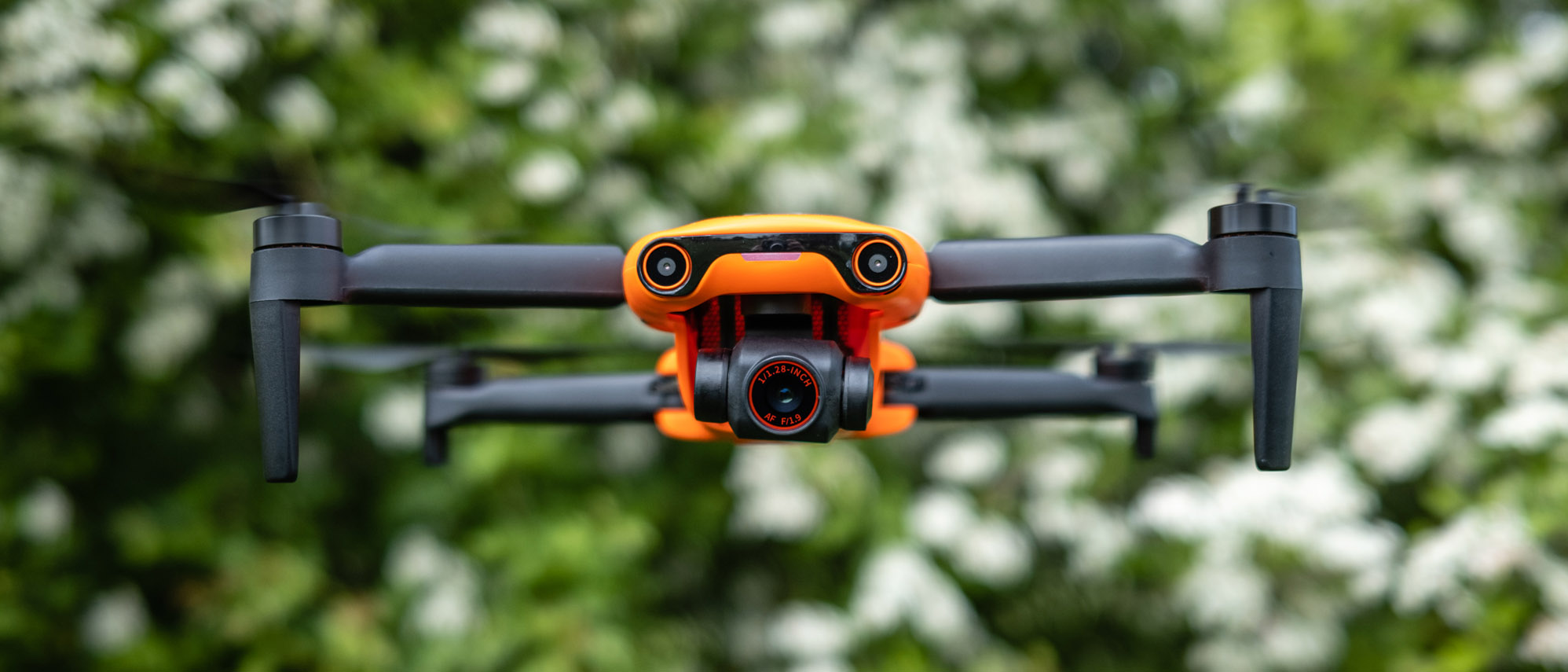Space Verdict
With advanced features more commonly seen in larger and more expensive drones, the small and lightweight Autel EVO Nano+ is a miniature force to be reckoned with.
Pros
- +
4K video and Raw Photos
- +
Collision avoidance
- +
Sub 250g category drone
Cons
- -
No Raw option for 50MP photos
- -
4K video limited to 30fps
- -
Struggles in wind over 20mph
Why you can trust Space.com
The regulator-friendly sub 250g drone category is one of the most exciting classes because of the impressive features and technology that manufacturers can fit into these tiny drones. And the Autel EVO Nano+ doesn’t disappoint by providing advanced features and functionality that make it one of the best drones for both enthusiasts and professional drone pilots.
The Nano+ was released in January 2022 and was the first sub 250g drone to offer advanced collision avoidance alongside cinematic shooting modes to capture professional-looking aerial videos with ease. What’s more, the Nano+ can capture 12.5MP photos in Raw and JPEG formats, 50MP photos in JPEG, as well as 4K video up to 30fps in Standard and D-Log color profiles.
Weight: 8.78oz / 249g
Dimensions: 142×94×55mm (Folded) / 260×325×55mm (Unfolded)
Battery (type, length): 2250 mAh LiPo 2S / up to 28 minutes
Charger type: USB-C cable or AC Mains 100-240V/50-60 Hz 30W
Modes: Ludicrous, Standard, Smooth
Video transmission range: 6.2 miles / 10km
Video resolution: 4K, 2.7K, 1080p (FHD)
Frame rates: 4K up to 30fps / 2.7K up to 30fps / FHD up to 60fps
What can be achieved with these tiny drones is truly remarkable, and despite its small size and low weight the Nano+ can achieve speeds of up to 33mph with level 5 wind resistance (up to 24mph). Plus, the small 2250 mAh batteries can provide around 20 minutes of flight time in normal conditions, although they’re advertised as providing up to 28 minutes of flight time.
If you're a novice and you're looking for one of the best beginner drones, the Autel EVO Nano+ is a fantastic option. And if you are just getting started on your drone adventure, be sure to check out our drone photography tips and tricks article too.
Autel EVO Nano+ review: Design
- Compact and lightweight folding design
- Solid build quality
- Available in four color options
Available in four colors – Classic Orange, Deep Space Grey, Blazing Red and Arctic White, the Nano+ features a folding design for transportation with propeller arms that fold out for flight. Build quality is excellent overall, and this 249g drone is just 142×94×55mm when folded and 260×325×55mm unfolded so carrying it with several spare 82g batteries is no burden at all.
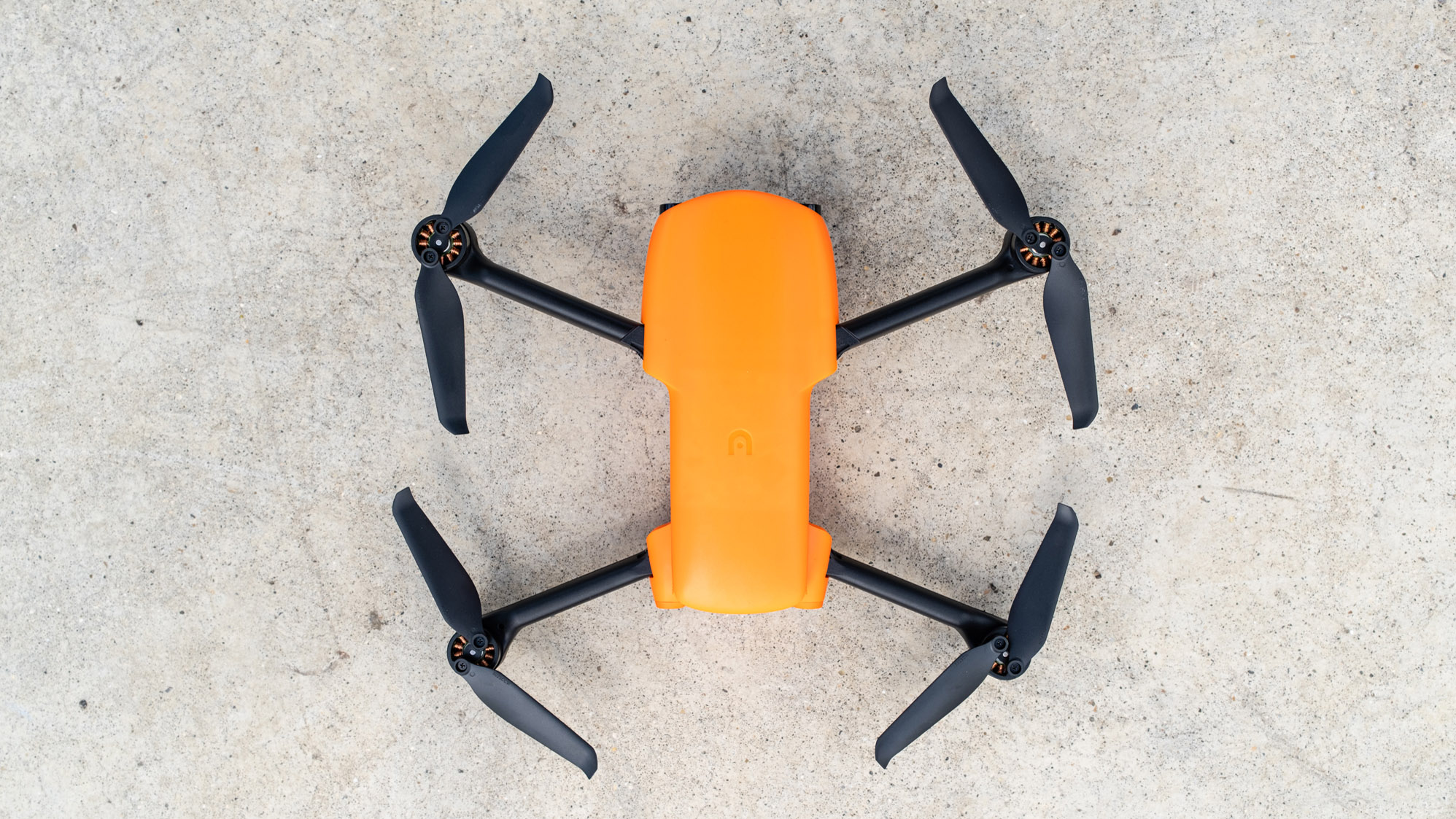
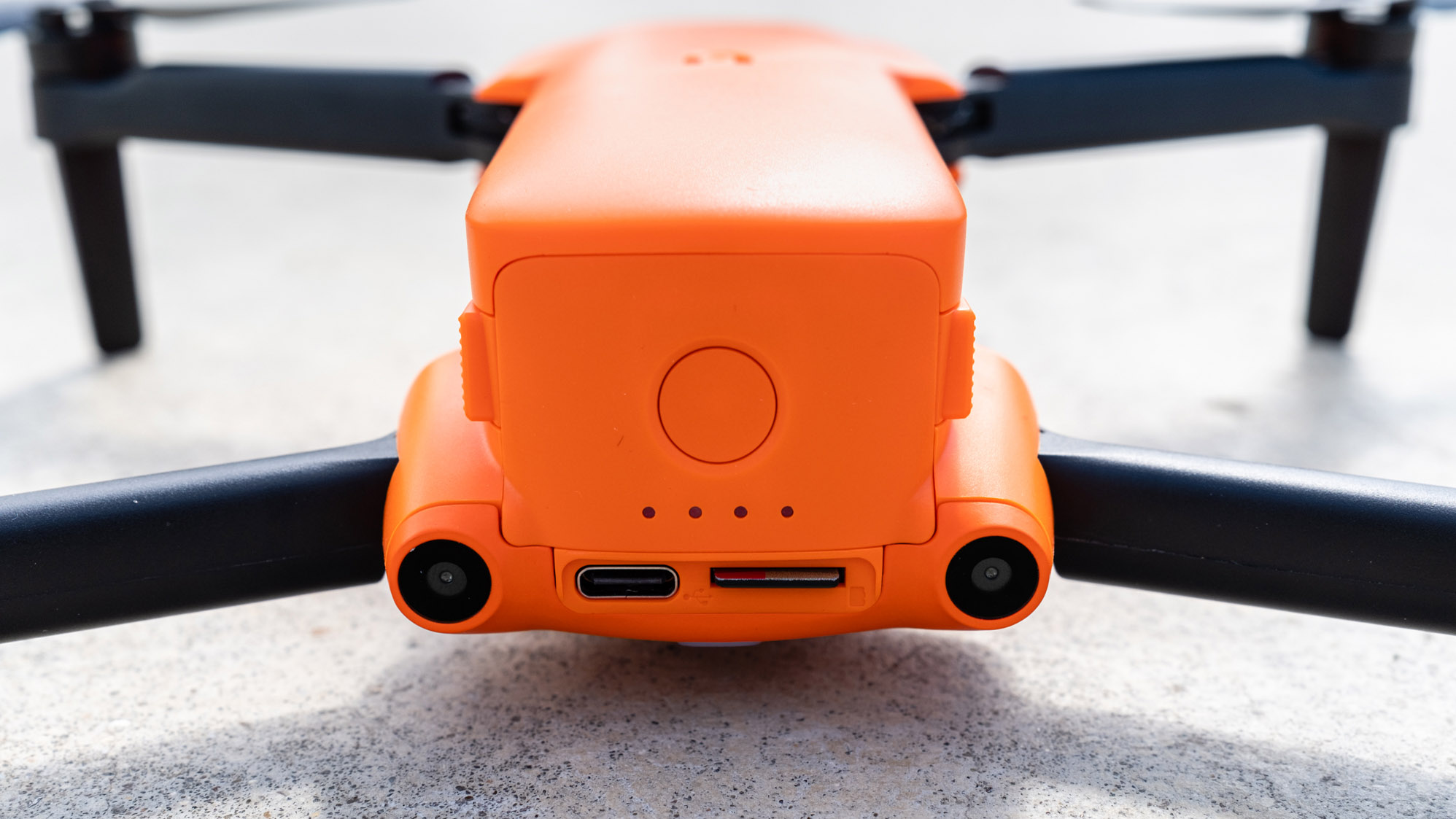
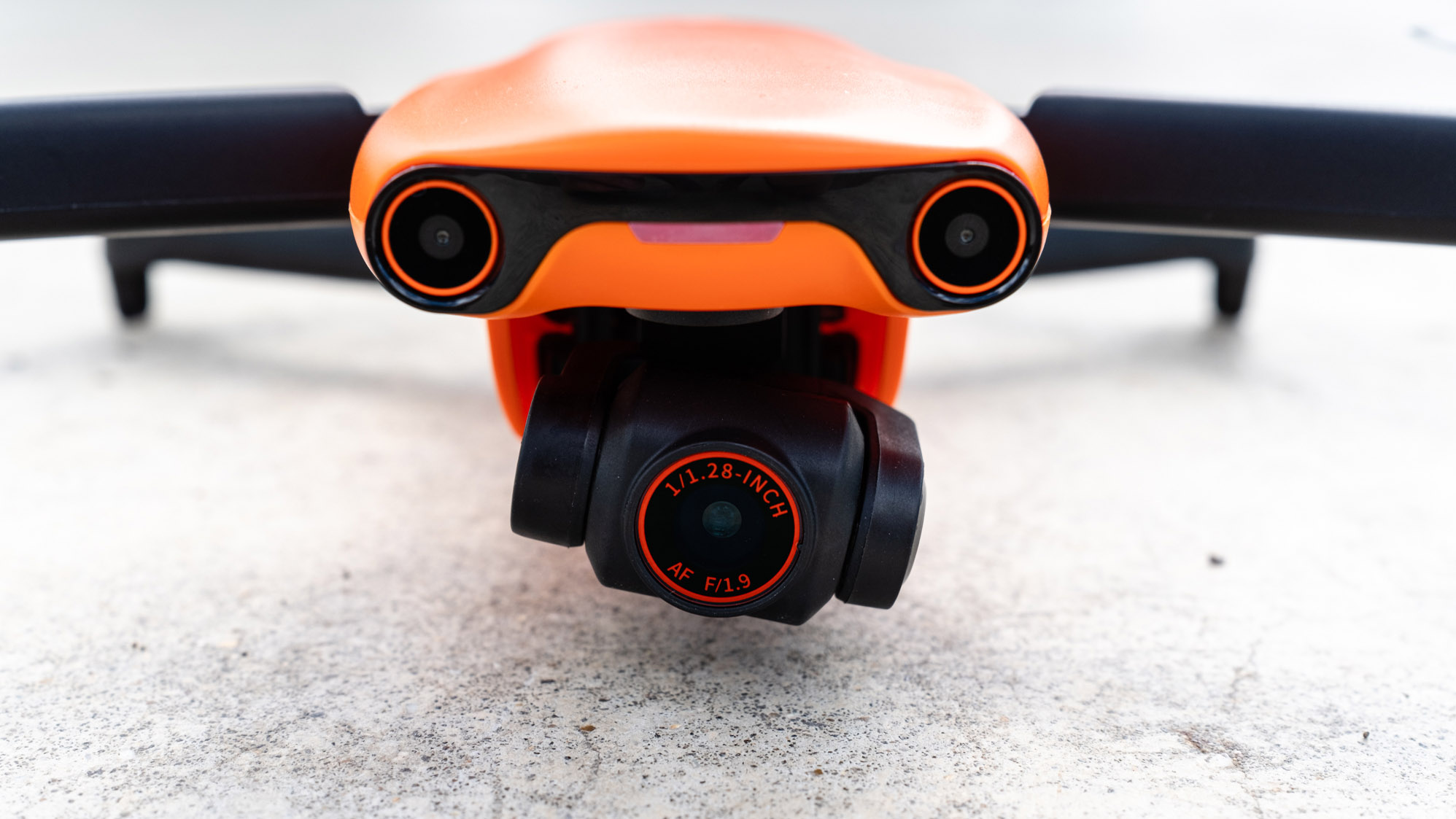
The controller resembles an Xbox controller and offers six direct access controls including a customizable Function button and the gimbal control. It feels comfortable in the hands with a textured surface for grip, and the thumb sticks are responsive without being too sensitive which is perfect for smooth flight. One downside to the controller, however, is that while the thumb sticks can be removed to reduce size for transportation, there’s nowhere to store them on the controller itself.
With no screen on the controller, all camera and drone settings are accessed via the AutelSky app on your smartphone, and this is easy and intuitive to use. Plus, you can download video to the app from the drone to edit if you wish. The phone holder at the top extends tall enough to accept even the largest smartphones, while the phone cable to link the phone app to the controller plugs into the controller behind the phone holder.
Breaking space news, the latest updates on rocket launches, skywatching events and more!
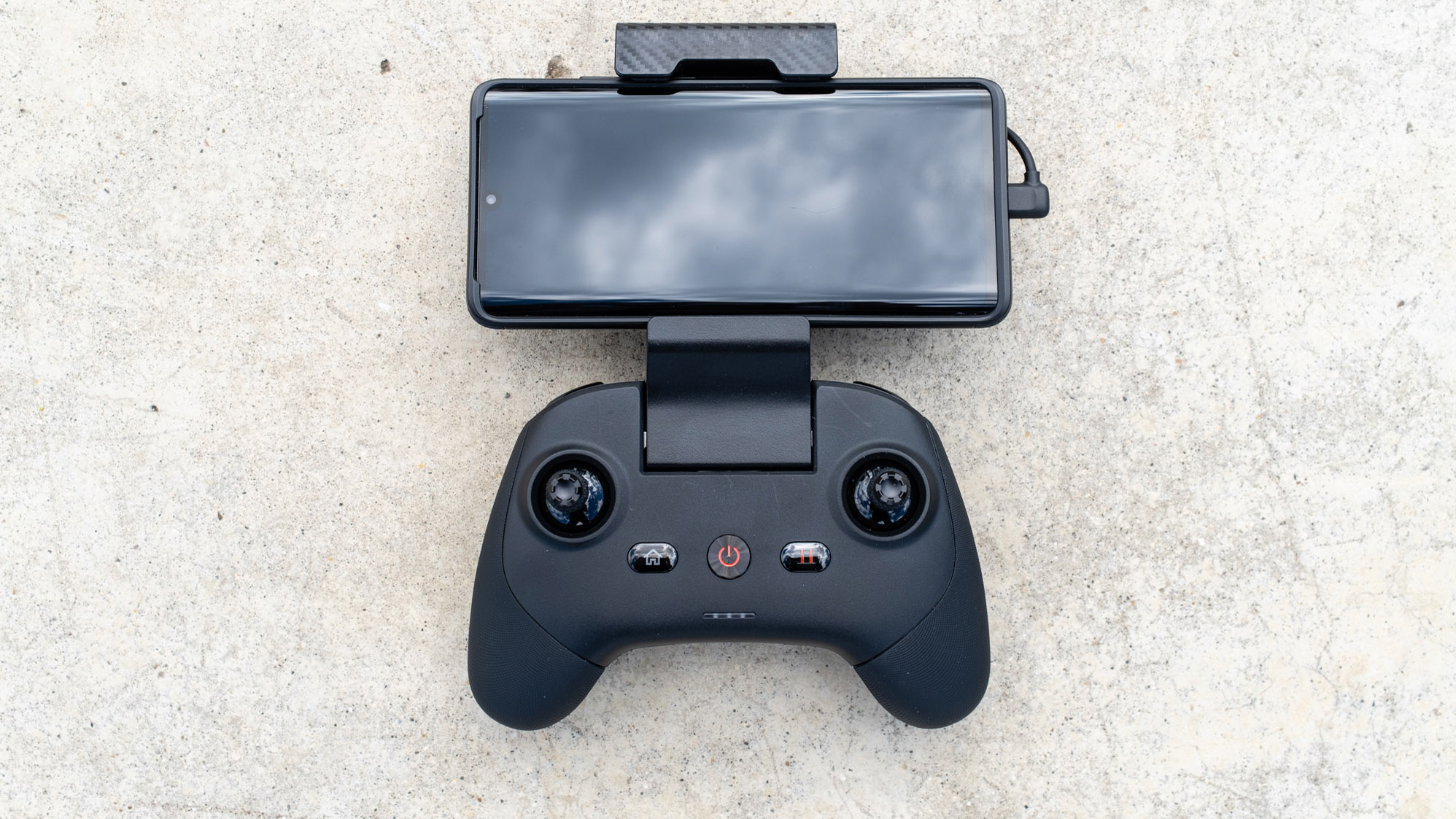
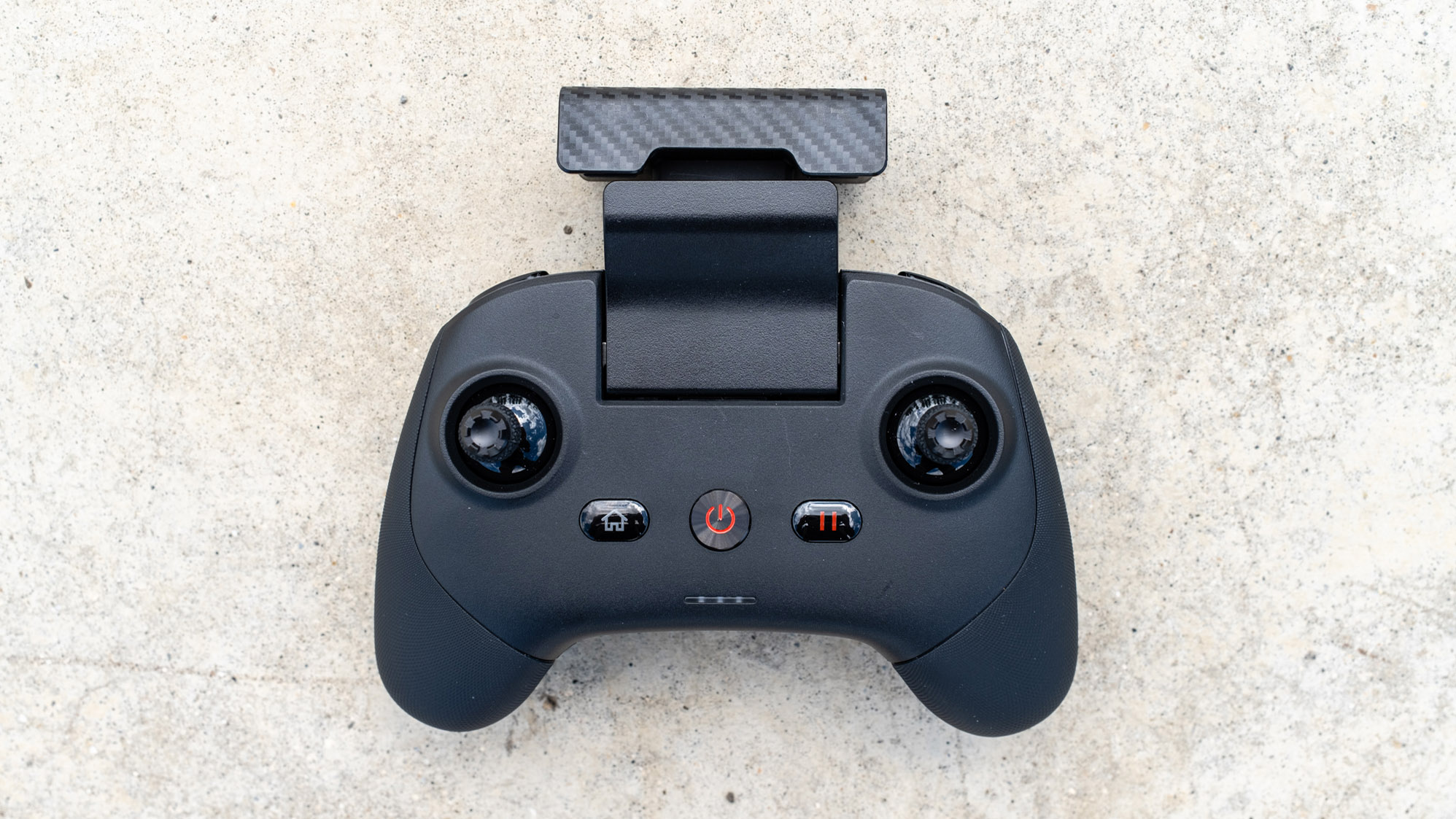
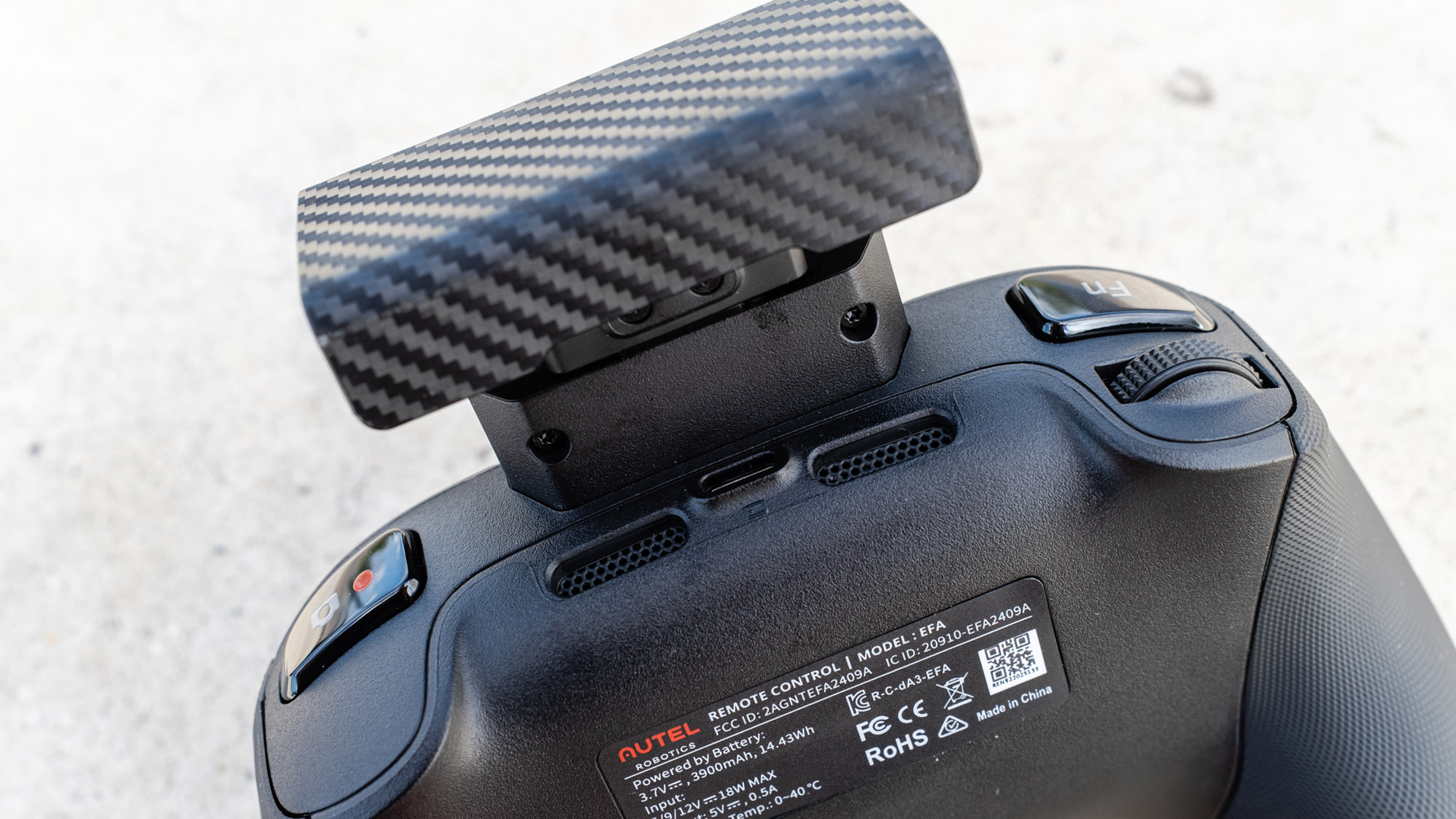
Autel EVO Nano+ review: Functionality
- Advanced collision avoidance
- Subject tracking
- Automated flight modes
When it comes to flight, the Nano+ is responsive and stable in the air while the 3-axis mechanical gimbal does a great job of keeping the camera steady during video shooting. The drone is rated at level 5 wind resistance (up to 24mph), and it can certainly fly in windy conditions, although when flying into the wind the drone struggles when gusts are over 20mph. In reality, sub 250g aren’t as powerful as larger drones so they’re better suited to calmer conditions.
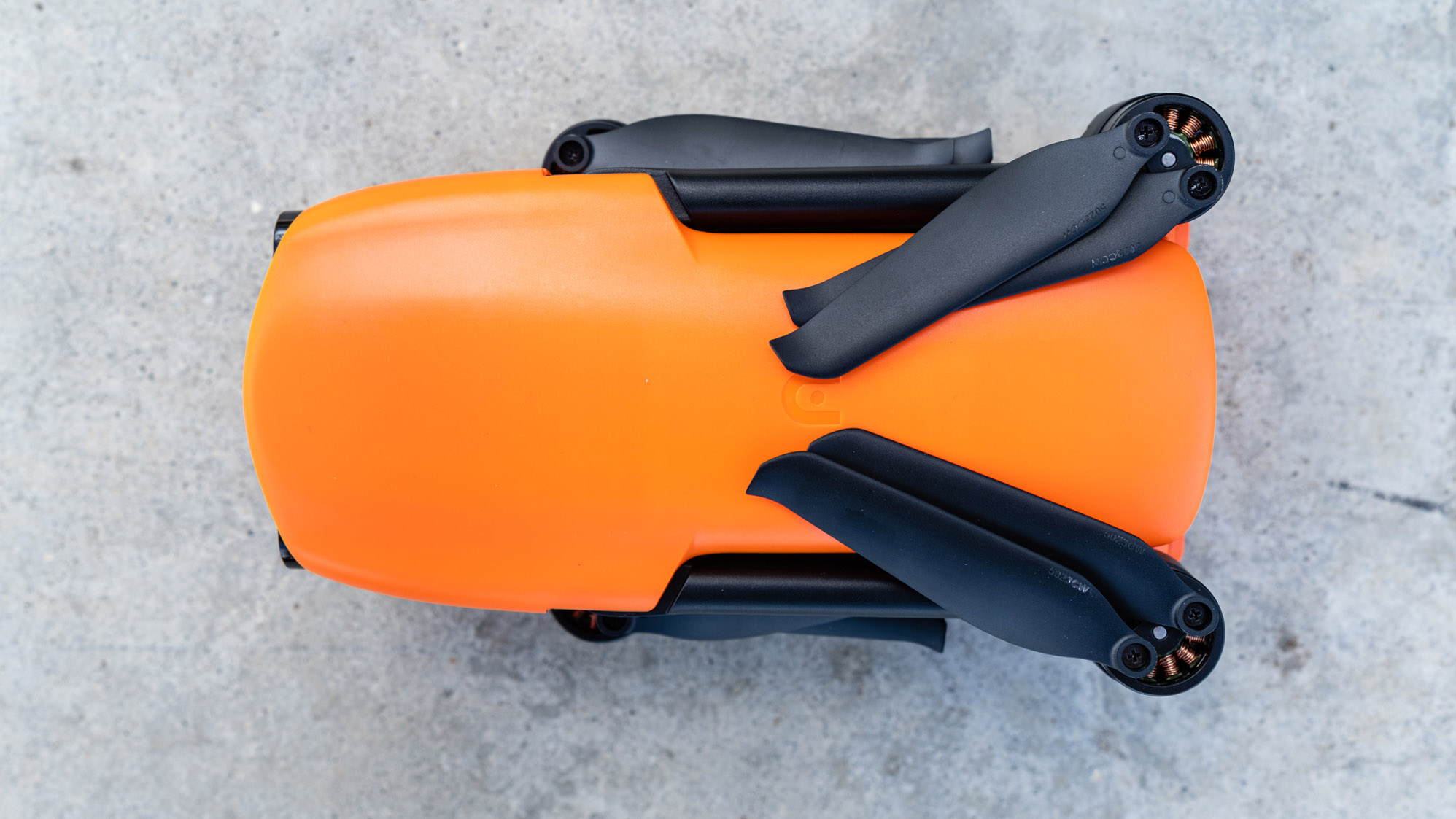
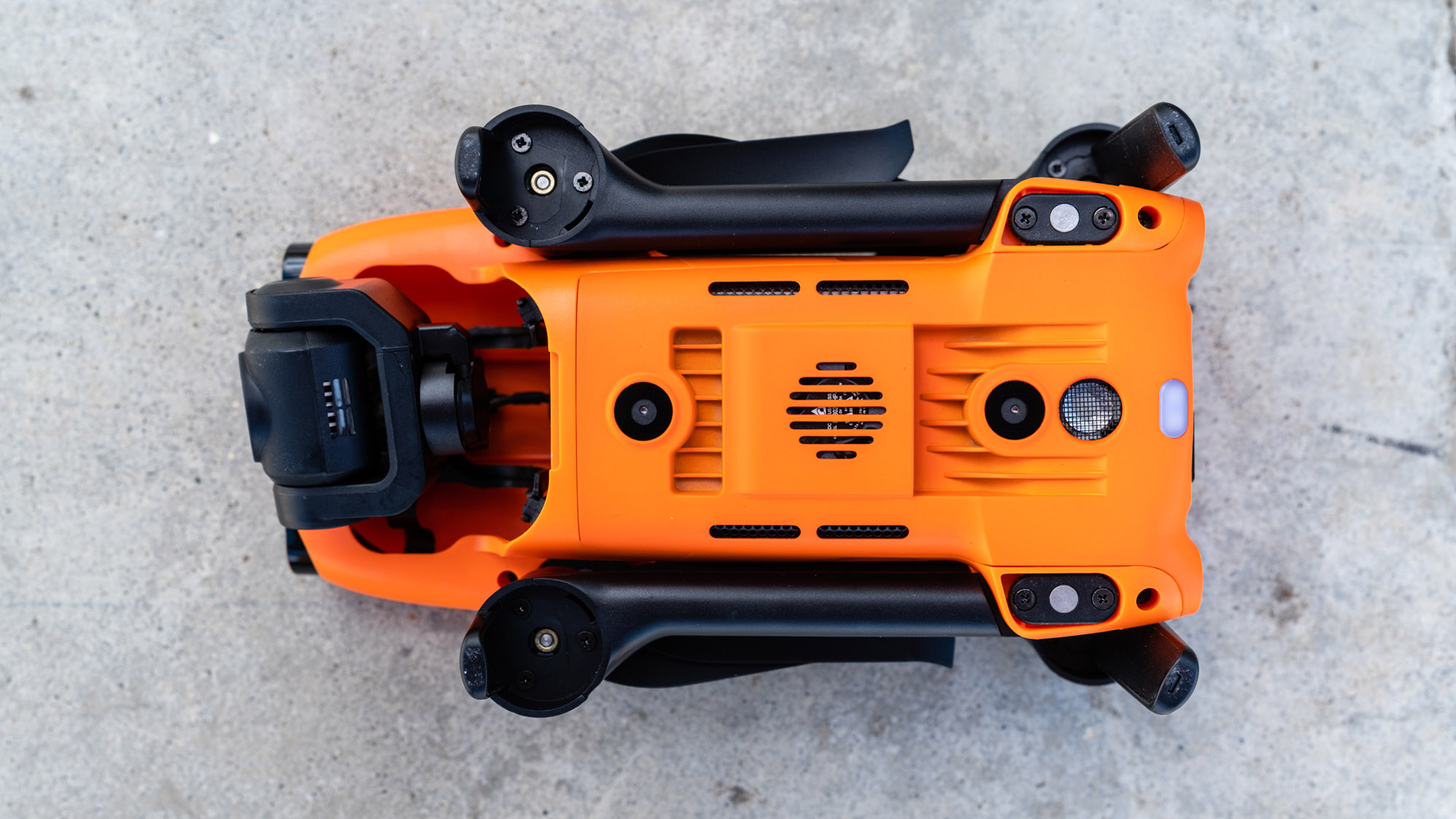
Flying the Nano+ is easy and safe thanks to the advanced collision avoidance system that uses three-way binocular vision sensors on the front, bottom and rear of the drone. This is quite sensitive and makes flying in complex environments such as woodland almost impossible with it turned on, but when obstacles are detected, the drone will brake to avoid a collision so its effectiveness can’t be faulted.
Collision avoidance brings with it other useful features that include automated flight patterns for capturing professional-looking video at the touch of a button; these include Rocket, Fade Away, Orbit and Flick. Another feature is Dynamic Track subject tracking for tracking moving subjects, but this is unavailable at the time of writing and will be made available in a firmware update in the future.
It's worth noting here, while sub-250g don't need to be registered, do be sure to check the drone regulations in your local area before you take it out for a spin.
Autel EVO Nano+ review: Performance
- 12.5MP 1/1.28-inch sensor
- Up to 4K video at 30fps
- Excellent video quality
The Nano+ camera features a 12.5MP 1/1.28-inch sensor with an equivalent focal length of 23mm and a fast f/1.9 aperture. The sensor pixel size is 2.44 μm, which alongside the fast aperture and RYYB sensor provides excellent low light shooting capabilities. The ISO range for both photos and video is 100-6400, and noise handling at higher settings is impressive for such a small sensor with a subtle incremental increase in noise levels as the ISO level is increased.
Image quality when shooting stills is good, but there is a small amount of fall off in sharpness towards the edges of the frame. There’s also a small amount of vignetting visible alongside chromatic aberration along subject edges, but these can be easily fixed in Raw editing software such as Adobe Lightroom. White balance also tends to be slightly too cold, but this can be easily remedied in post processing.
For stills photography, you can shoot in Raw, JPEG or both when shooting 12.5MP photos, although when shooting 50MP photos you’re limited to JPEG. Hopefully, this will be changed in a future firmware update, although Adobe Super Resolution can be used to increase Raw file size if you need larger images in Raw format.
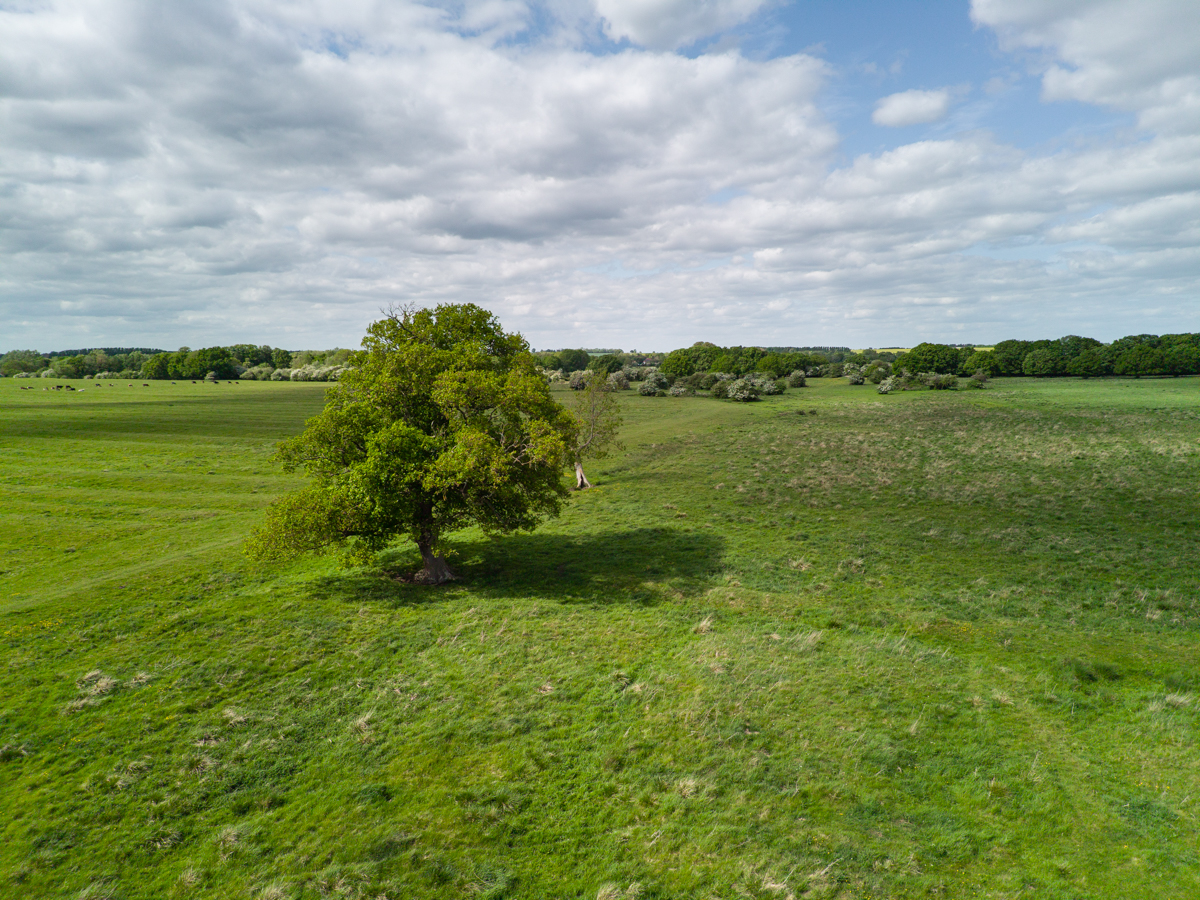
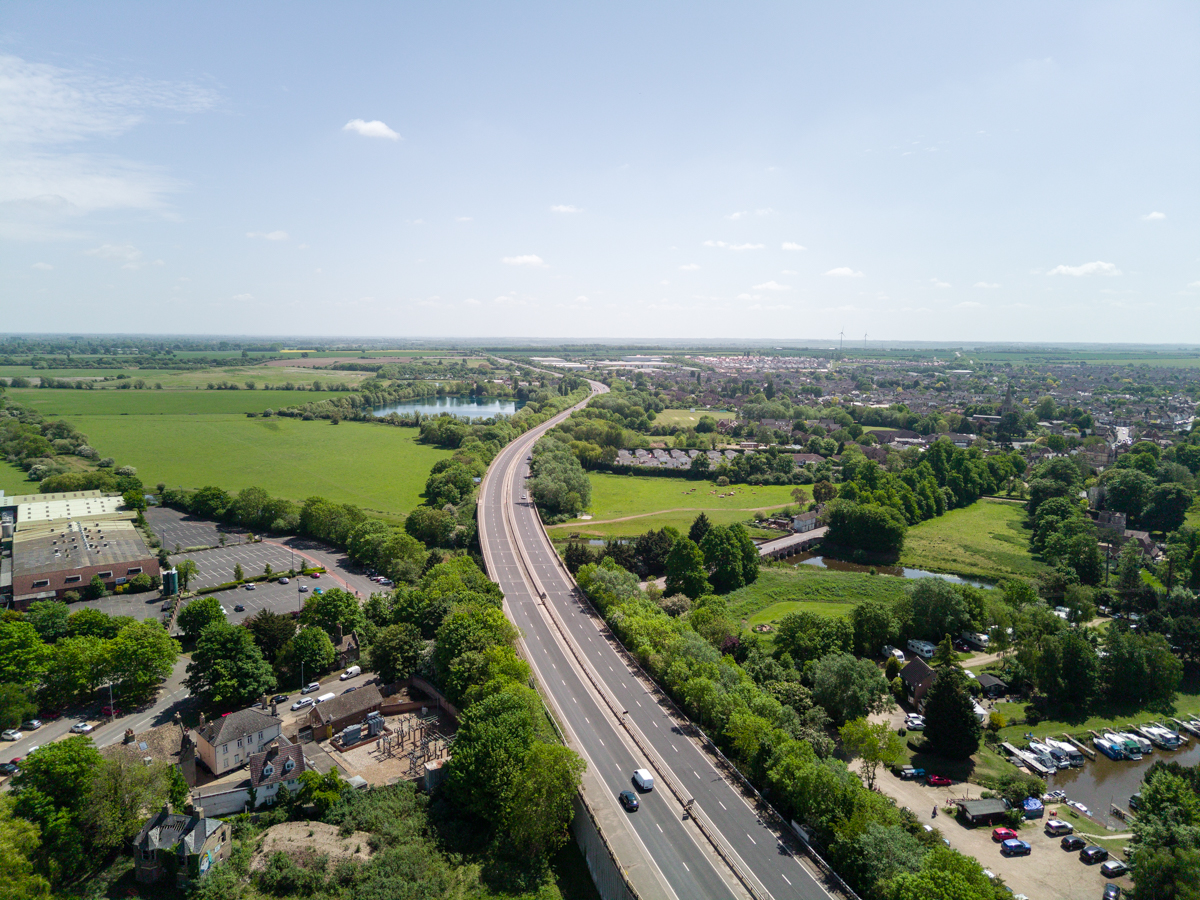
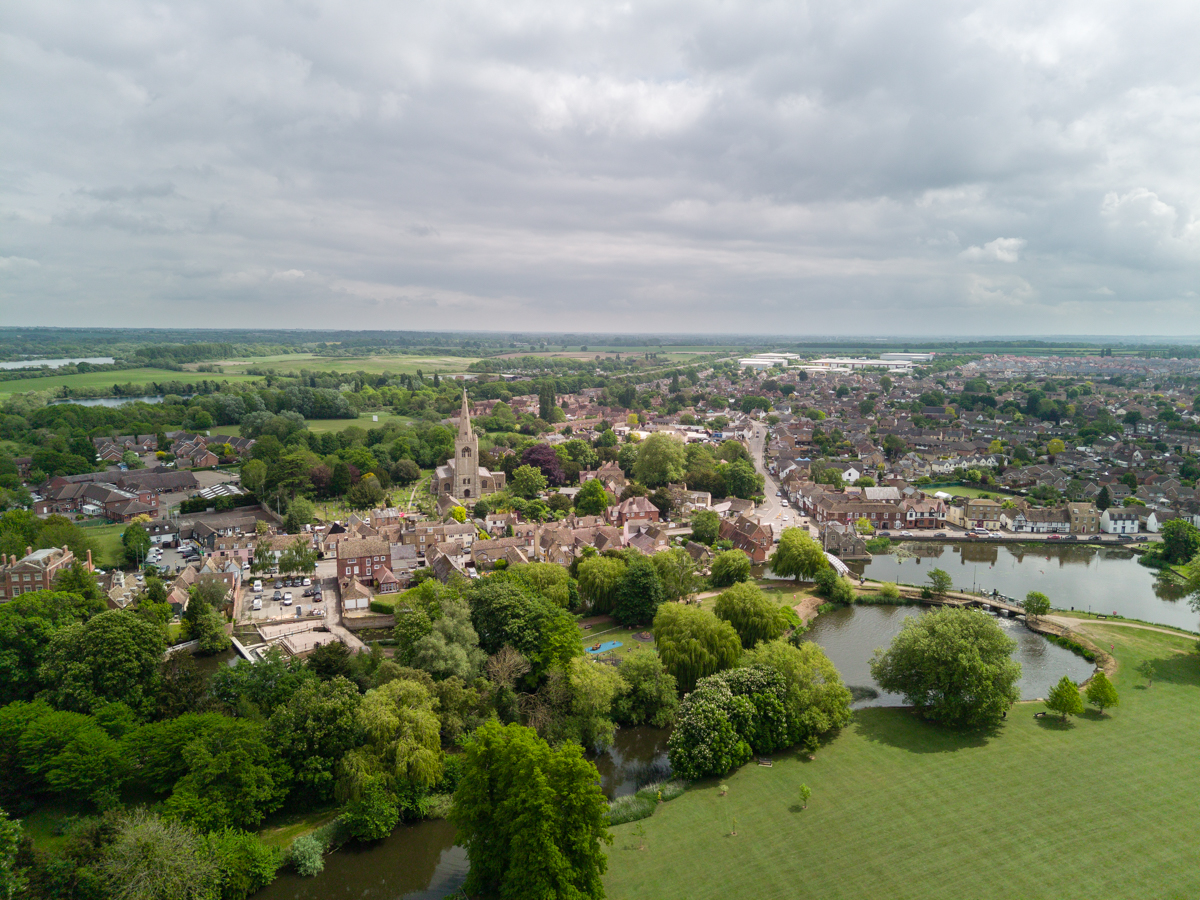
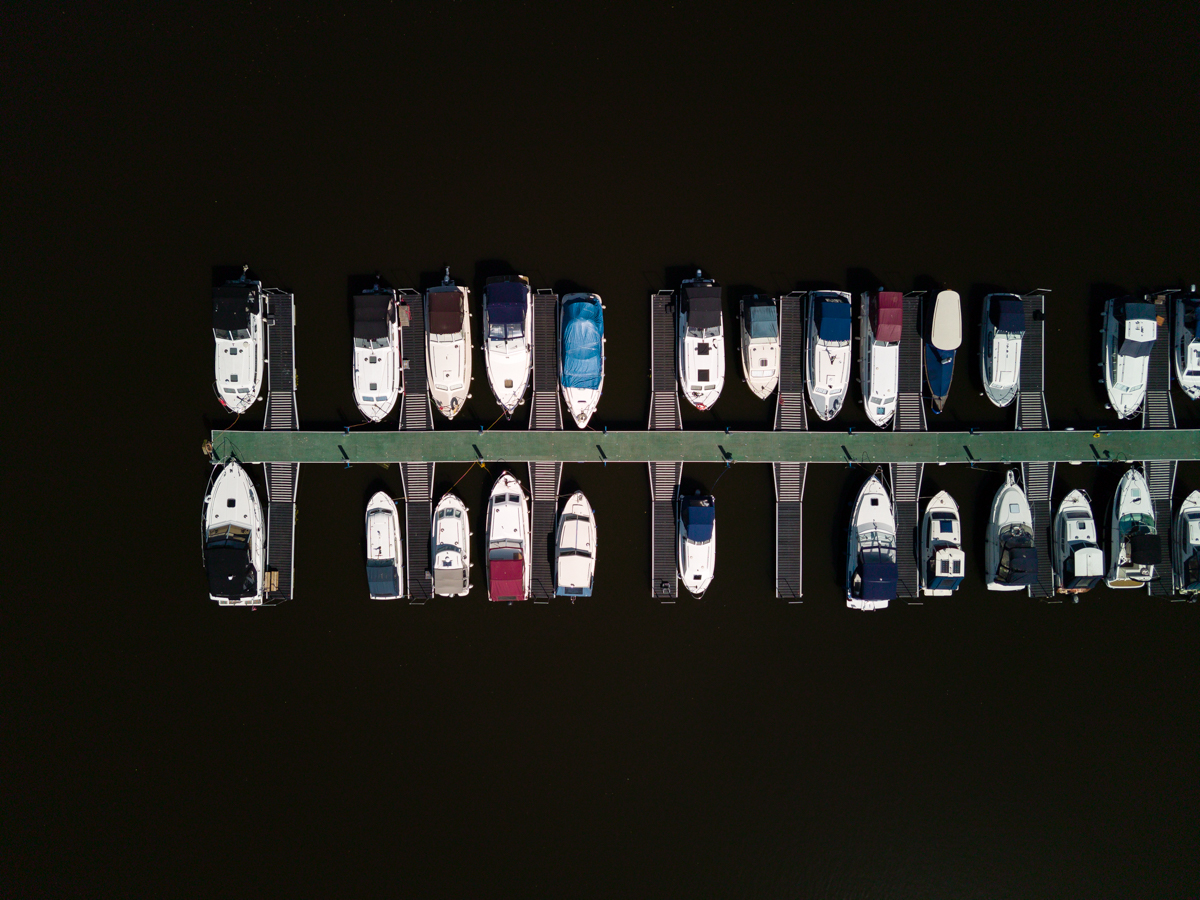
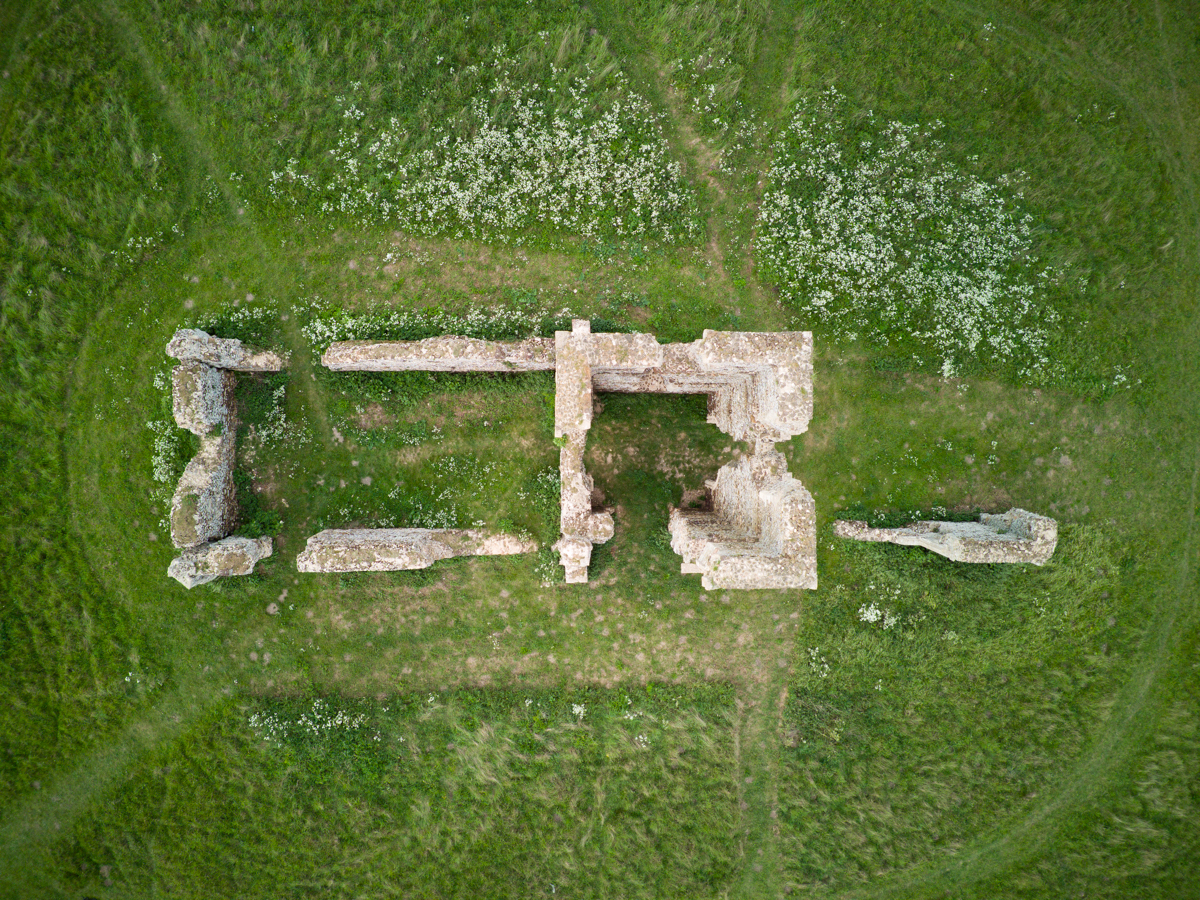
In terms of video, image quality is excellent with no vignetting or chromatic aberration visible, with finer detail than stills. There’s also a digital zoom, but this is best used minimally because of the loss of image quality the more you zoom in. One point to note with video is that with the fast f/1.9 aperture is that you’ll need to use ND filters to maintain a correct shutter speed to capture smooth and natural looking movement.
For video, you can shoot 4K at 30/25/24 fps, 2.7K at 30/25/24 fps and FHD at 24/25/30/48/50/60 fps with a maximum bitrate of 100Mbps. Video can be captured in both Standard and D-Log color profiles, with the former for straight out of camera footage and the latter for color grading and professional workflows. Time-lapse videos are captured in 4K at 25fps and you can save individual images in Raw or JPEG.
Autel EVO Nano+: Price
The Autel EVO Nano+ is available in two kits; the first is the standard bundle, which costs $899 / £719 and comes with the drone, a controller, one battery, a spare pair of propellors, a USB-C charging cable, spare propeller screws, a mini screwdriver and three phone cables.
Additional batteries and accessories can be purchased individually so you can configure a kit to suit your needs if you wish. But the second Nano+ kit comes with useful accessories you’re likely to need, as well as providing better value for money than purchasing the included accessories separately, so this option makes the most sense.
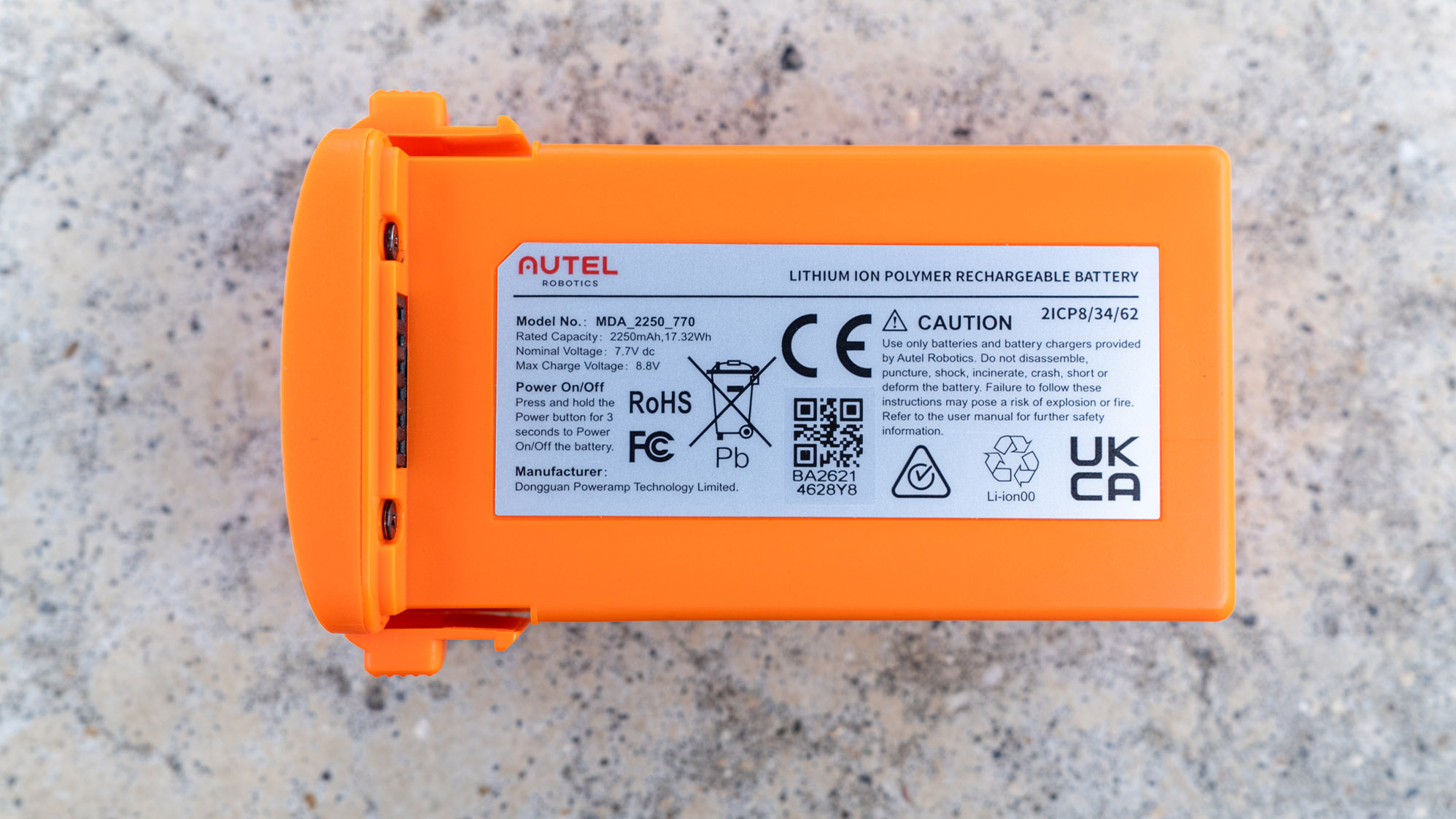
The Nano+ with the premium bundle comes with everything in the standard bundle but also includes two additional batteries, four additional pairs of propellers, a power adaptor, a three battery charging hub and a propeller holder. This kit costs $1049 / £859, but if you decided to purchase the standard bundle, the premium bundle can be bought separately for $219 / £199.
Should you buy the Autel EVO Nano+?
Buying a drone is just like buying a standard camera for photography: cost, features, user interface, image quality and, of course, personal preference always play an important role in the decision-making process. But if you’re looking for a sub 250g drone that has all the features you need, all within an incredibly small and lightweight package, the Nano+ is certainly worth considering.
The Nano+ is a great option for beginners thanks to the highly effective collision avoidance that slows and then stops the drone when an obstacle is detected. But since it can also shoot still in Raw format and video up to 4K at 30fps in standard and D-Log color profiles, it also has plenty of potential within a professional workflow. Plus, with a standard kit, a premium bundle and accessories such as flight batteries available separately, you can configure a kit that suits your needs perfectly.
If this product isn't for you
Autel is one of DJI’s main rivals and offers a fantastic alternative with equally cutting-edge technology. But if you’re looking for a similar feature set with additional functionality, the sub 250g DJI Mavic Mini 3 Pro could provide an interesting alternative. Not least because of its camera that can rotate 90° to shoot in portrait and landscape format, but also because it can be purchased with a standard controller or a smart controller with a built-in touchscreen.
If you’d prefer a larger and more powerful drone with a larger 1-inch sensor and longer flight times, the Autel EVO Lite+ is a great option. There is also an EVO Lite version, but this has the same size sensor as the Nano+ so the benefits of the upgrade would be limited to more power and longer flight times but with a weight of over three times that of the Nano+.
James is an award-winning freelance landscape and portrait photographer, as well as a highly experienced photography journalist working with some of the best photography magazines and websites with a worldwide audience. He’s also the author of The Digital Darkroom: The Definitive Guide to Photo Editing. www.jamesaphoto.co.uk
